When it comes to enhancing your home’s curb appeal, one of the most impactful yet often overlooked elements is the driveway. A decorative concrete driveway not only serves its primary function of providing a stable surface for vehicles but also adds an elegant aesthetic to your property. In this exhaustive guide, we will explore everything you need to know about decorative concrete driveways, from their benefits and installation methods to maintenance tips and design ideas.
What is Decorative Concrete Driveway?
A decorative concrete driveway is a visually appealing surface created using standard concrete mixed with various additives or techniques. Unlike traditional plain concrete driveways, decorative options allow for color, texture, and pattern preferences that can complement your home’s style.
Types of Decorative Concrete Driveways
There are several popular styles and techniques for decorative concrete driveways:
- Stamped Concrete: A method that involves imprinting patterns and textures onto fresh concrete to mimic materials like stone, brick, or tile.
- Colored Concrete: This involves adding pigments to the concrete mix or applying stain to achieve various colors.
- Exposed Aggregate: This technique reveals the aggregate stones in the concrete surface by removing the top layer of cement, providing a unique texture and appearance.
- Polished Concrete: Achieved by grinding down the surface of the concrete to a high shine, often used for modern and sleek aesthetics.
Benefits of Decorative Concrete Driveways
Choosing a decorative concrete driveway offers numerous advantages that extend beyond aesthetics. Here are some key benefits:
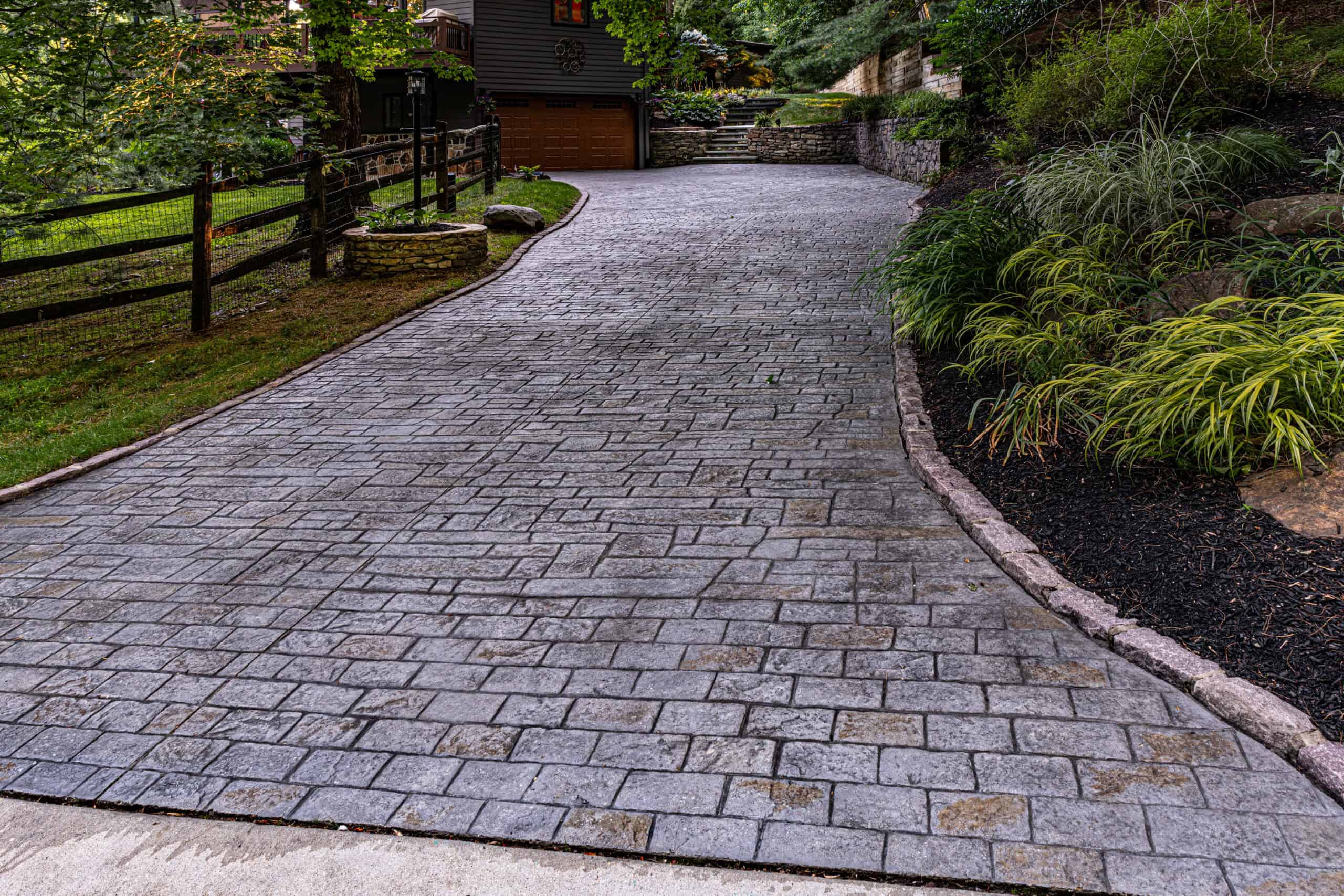
Enhanced Curb Appeal
The visual appeal of a decorative concrete driveway can significantly improve your home’s exterior. This can increase property value and make a positive impression on visitors.
Durability and Low Maintenance
Concrete is known for its long-lasting nature. With proper care, a decorative concrete driveway can last for decades with minimal maintenance.

Cost-Effectiveness
While the initial installation cost may be higher than traditional asphalt driveways, the longevity and low ongoing maintenance of concrete make it a cost-effective solution over time.
Customizability
With a variety of colors, patterns, and finishes available, decorative concrete driveways can be tailored to match your home’s design, ensuring a unique look.
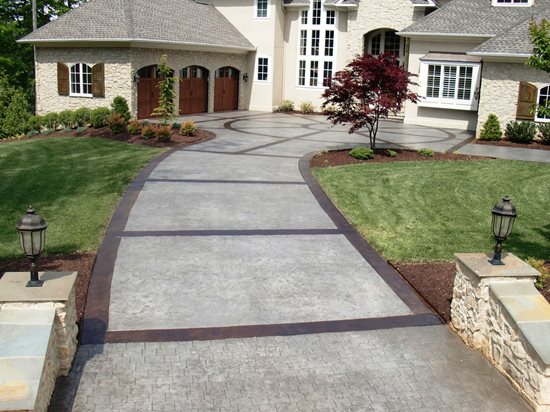
Installation Process of Decorative Concrete Driveways
A successful installation is key to the longevity and effectiveness of a decorative concrete driveway. Here’s a step-by-step overview of the installation process:
Step 1: Planning and Design
Begin by determining the layout and design. It is crucial to choose materials and patterns that complement your home’s architecture.
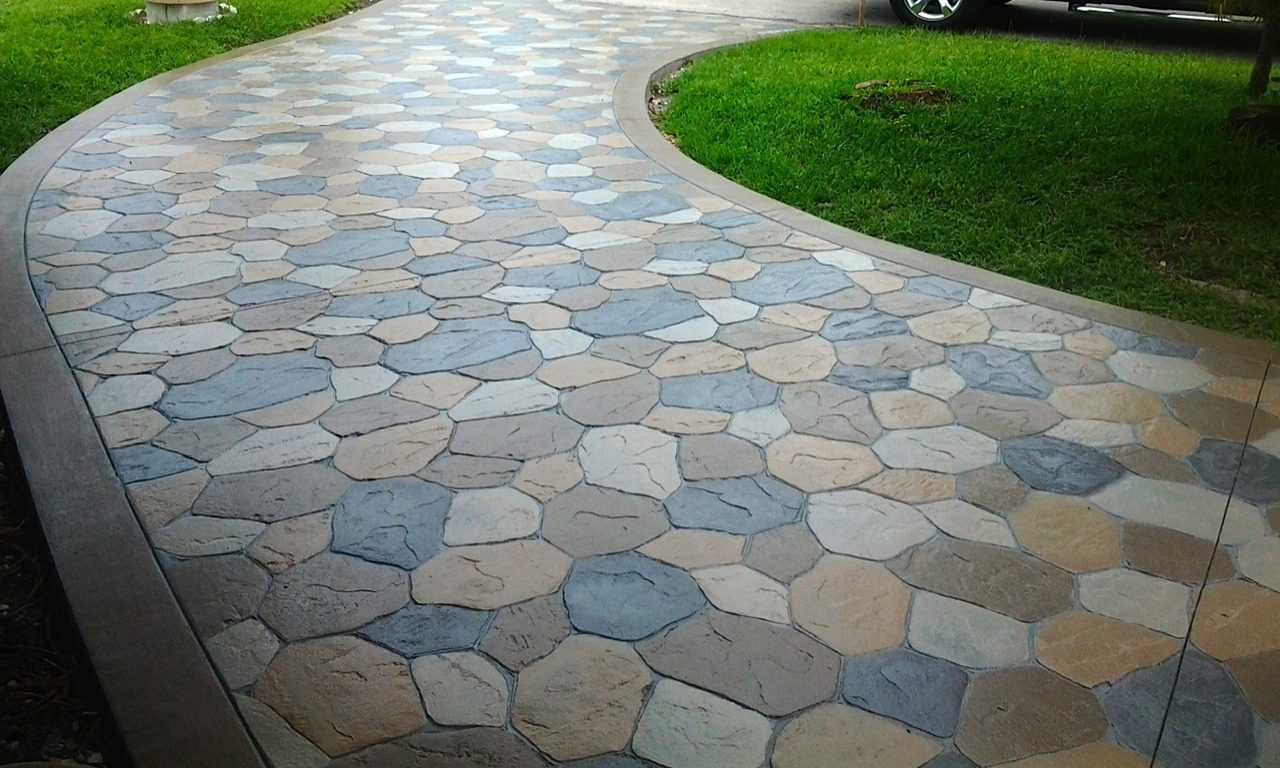
Step 2: Site Preparation
This involves removing the existing driveway (if there is one), grading the site, and compacting the soil to ensure a solid base for the new concrete.
Step 3: Framing
Install forms using wooden boards to create the shape of the driveway. Properly leveled forms are essential for a smooth finish.
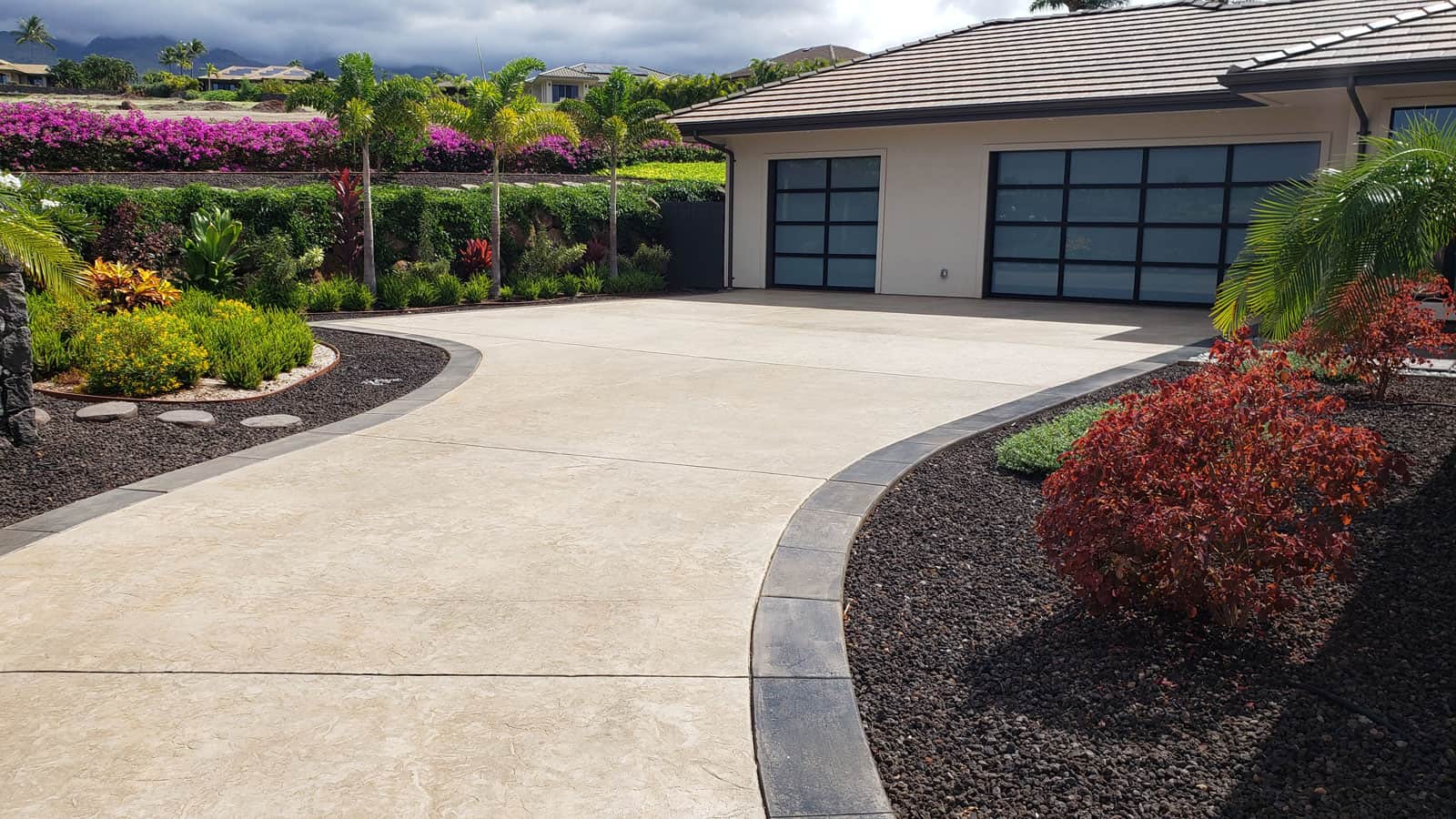
Step 4: Pouring Concrete
Mix the concrete according to the desired specifications and pour it into the framed area. Use tools to spread evenly.
Step 5: Applying Decorative Techniques
At this stage, apply stains, dyes, or stamping tools while the concrete is still wet, according to the selected design.
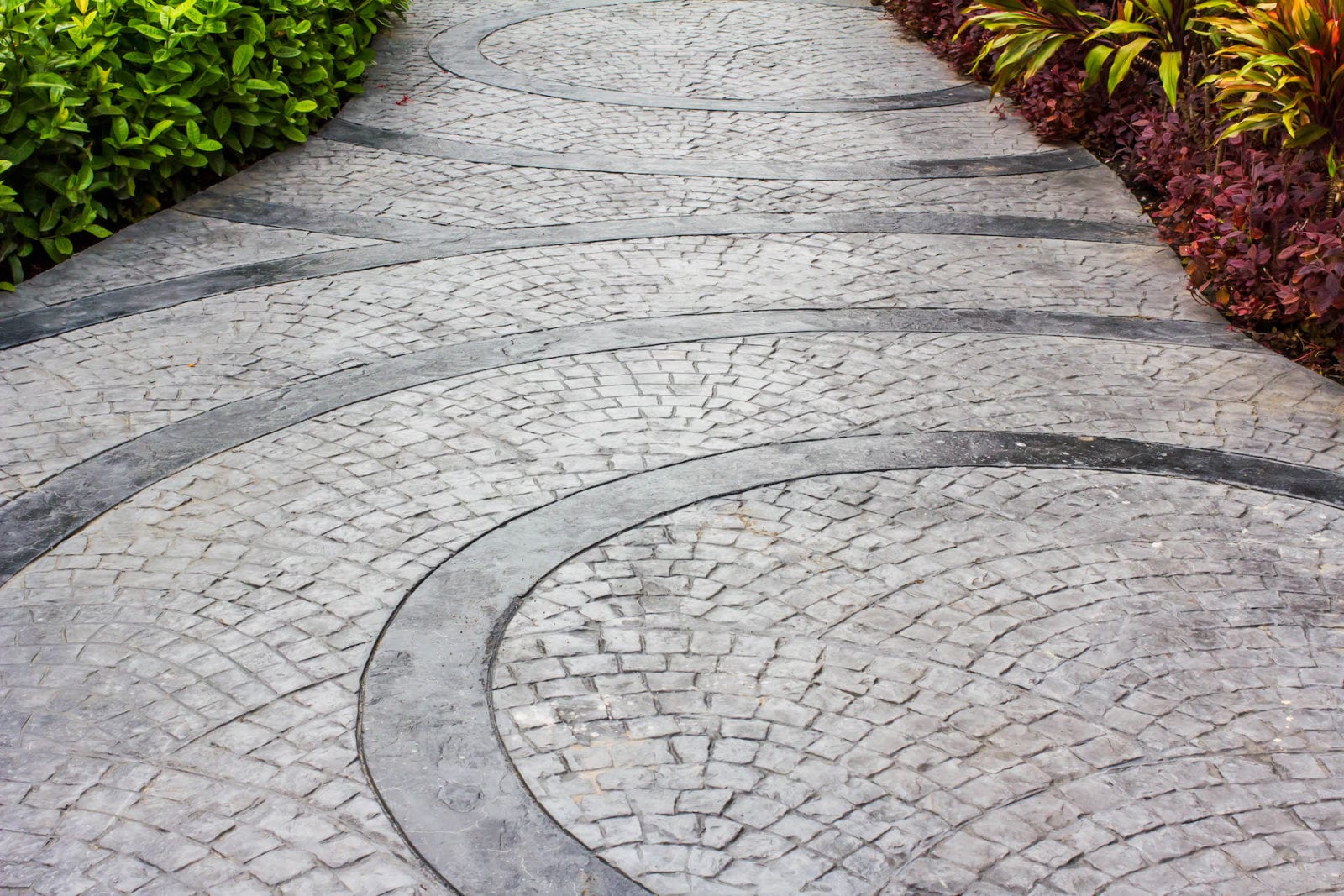
Step 6: Curing
Allow the concrete to cure properly, which typically requires at least 7 days of keeping the surface moist to avoid cracks.
Step 7: Sealing
Once cured, applying a sealant can protect the decorative finish from weathering and staining, enhancing its lifespan.
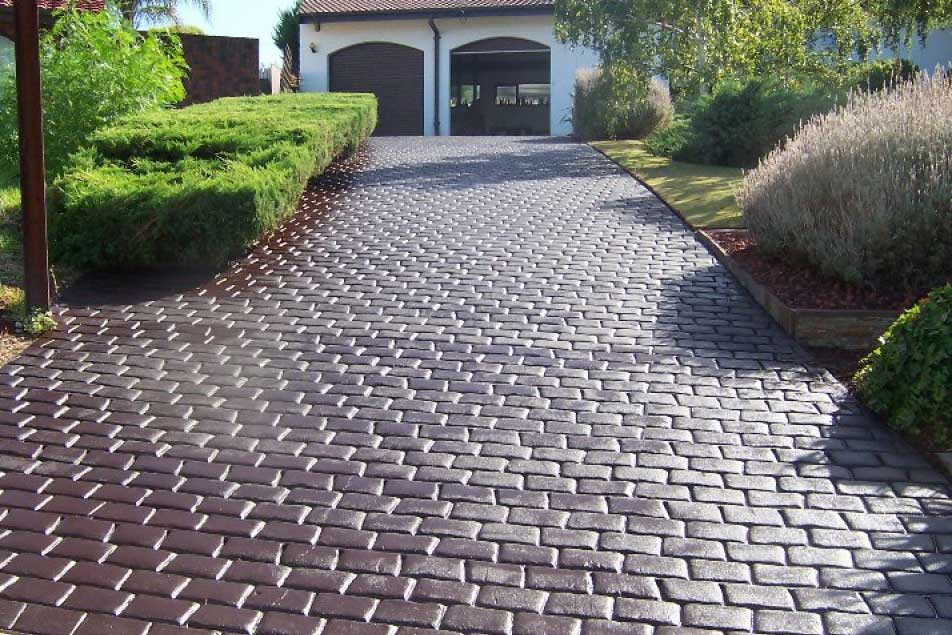
Maintenance Tips for Decorative Concrete Driveways
While decorative concrete driveways are relatively low-maintenance, a few simple steps can ensure they remain beautiful for years to come:
Regular Cleaning
Use a broom or pressure washer to remove dirt, leaves, and debris. For stubborn stains, use a pH-neutral cleaner.
Sealing
Reapply a concrete sealant every 2-3 years to protect the surface from moisture, oil stains, and UV damage.
Repairing Cracks
If small cracks appear, fill them with a concrete repair compound to prevent them from expanding and causing further damage.
Winter Precautions
In colder climates, avoid using de-icing agents that can damage the sealant. Instead, use sand for traction.
Comparing Decorative Concrete to Other Driveway Options
| Feature | Decorative Concrete | Asphalt | Brick Pavers |
|---|---|---|---|
| Cost (per square foot) | $$$ | $$ | $$$$ |
| Durability | Very High | Medium | High |
| Maintenance | Low | Medium | High |
| Customization | High | Low | Medium |
Pros and Cons of Decorative Concrete Driveways
Pros
- Highly customizable to suit personal taste.
- Long-lasting and low maintenance.
- Improves property value and curb appeal.
- Various designs can mimic expensive materials.
Cons
- Higher upfront cost compared to other driveway materials.
- Can crack if not properly installed or maintained.
- May become slippery when wet if not treated.
Design Ideas for Decorative Concrete Driveways
Here are some popular design ideas that can inspire your decorative concrete driveway:
Modern Geometric Patterns
Incorporate sleek lines and geometric patterns to achieve a contemporary feel that complements modern architecture.
Classic Brick or Stone Appearance
Use stamped concrete techniques to create the appearance of brick or stone, giving your driveway an old-world charm without the high cost.
Colorful Stains
Add vibrancy with colored stains that can highlight specific features of your home’s exterior.
Integrating Landscaping
Consider incorporating borders with landscaping or gardens at the edges of your driveway to make the scene more inviting.
FAQs About Decorative Concrete Driveways
How long does a decorative concrete driveway last?
With proper installation and maintenance, a decorative concrete driveway can last anywhere from 25 to 30 years.
Can I install a decorative concrete driveway myself?
While some homeowners may choose to DIY, it’s recommended to hire professionals for the best results, especially for complex designs.
Are decorative concrete driveways prone to cracking?
All concrete can crack, but proper installation techniques, including adequate depth and reinforcement, can help minimize this risk.
What is the best sealant for decorative concrete driveways?
Acrylic sealers or epoxy-based sealers are popular choices for decorative concrete as they provide a strong protective layer.
Conclusion
Decorative concrete driveways are not just a functional aspect of your home; they are an investment in your property’s appearance and value. By understanding the various options available, the installation process, maintenance requirements, and design ideas, you can make an informed decision that enhances your home’s curb appeal for years to come. Whether you prefer a classic look or a modern flair, a decorative concrete driveway can truly transform your home.
We hope this guide has provided valuable insights into decorative concrete driveways. If you’re considering upgrading your driveway, take the plunge, and enjoy the charm and elegance that decorative concrete can bring to your property!